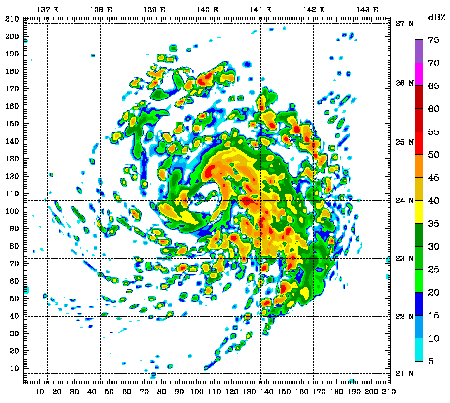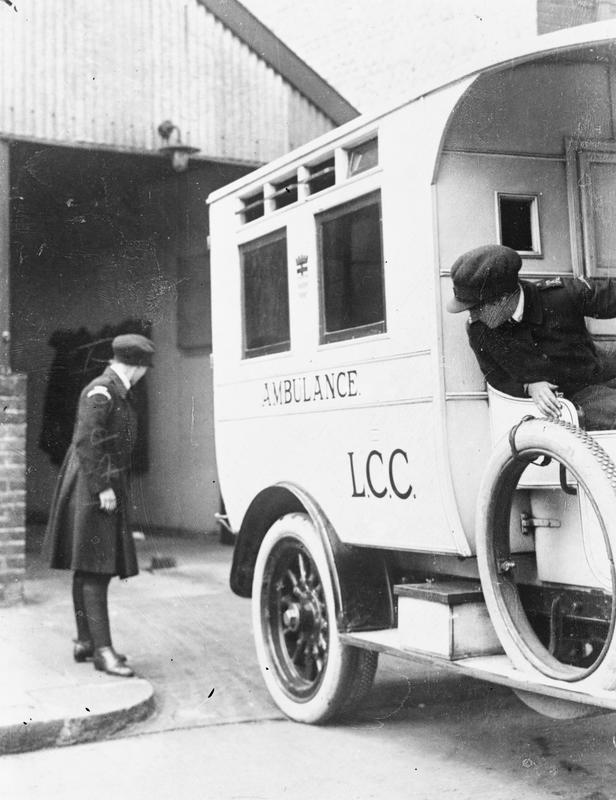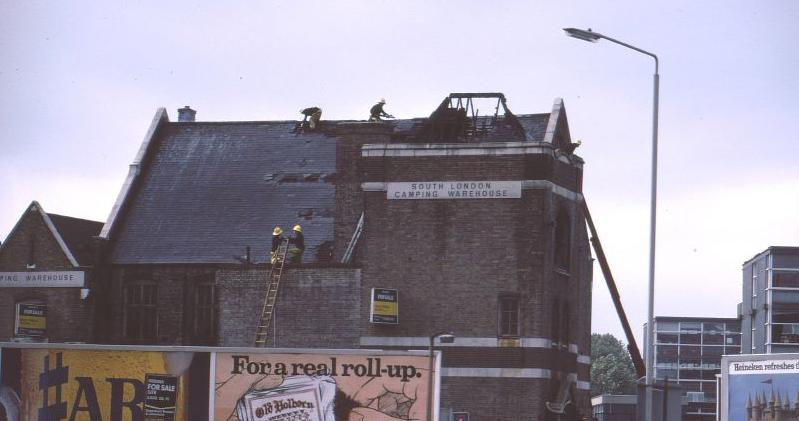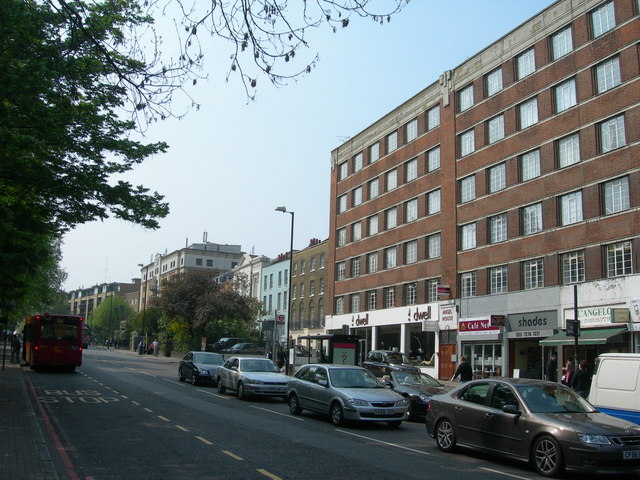|
King's Cross Fire
The King's Cross fire was a 1987 fire in a London Underground station with 31 fatalities, after a fire under a wooden escalator suddenly spread into the underground ticket hall in a flashover. The fire began at approximately 19:30 on 18 November 1987 at King's Cross St Pancras tube station, a major interchange on the London Underground. As well as the mainline railway stations above ground and subsurface platforms for the Metropolitan, Circle and Hammersmith & City lines, there were platforms deeper underground for the Northern, Piccadilly, and Victoria lines. The fire started under a wooden escalator serving the Piccadilly line and, at 19:45, erupted in a flashover into the underground ticket hall, killing 31 people and injuring 100. A public inquiry was conducted from February to June 1988. Investigators reproduced the fire twice, once to determine whether grease under the escalator was ignitable, and the other to determine whether a computer simulation of the fire—whic ... [...More Info...] [...Related Items...] OR: [Wikipedia] [Google] [Baidu] |
King's Cross Tube Station
King's Cross St Pancras (also known as King's Cross & St Pancras International) is a London Underground station on Euston Road in the Borough of Camden, Central London. It serves King's Cross and main line stations in fare zone 1, and is an interchange between six Underground lines. The station was one of the first to open on the network. As of , it is the station on the network for passenger entrances and exits combined. The station opened in 1863 as part of the Metropolitan Railway, subsequently catering for the Hammersmith & City and Circle lines. It was expanded in 1868 with the opening of the City Widened Lines, and the Northern and Piccadilly platforms opened in the early 20th century. During the 1930s and 1940s, the station was restructured and partially rebuilt to cater for expanded traffic. The Victoria line connection opened in 1968. The 1987 King's Cross fire that killed 31 people is one of the deadliest accidents to occur on the Underground and resulted in wi ... [...More Info...] [...Related Items...] OR: [Wikipedia] [Google] [Baidu] |
Computer Simulation
Computer simulation is the process of mathematical modelling, performed on a computer, which is designed to predict the behaviour of, or the outcome of, a real-world or physical system. The reliability of some mathematical models can be determined by comparing their results to the real-world outcomes they aim to predict. Computer simulations have become a useful tool for the mathematical modeling of many natural systems in physics ( computational physics), astrophysics, climatology, chemistry, biology and manufacturing, as well as human systems in economics, psychology, social science, health care and engineering. Simulation of a system is represented as the running of the system's model. It can be used to explore and gain new insights into new technology and to estimate the performance of systems too complex for analytical solutions. Computer simulations are realized by running computer programs that can be either small, running almost instantly on small devices, o ... [...More Info...] [...Related Items...] OR: [Wikipedia] [Google] [Baidu] |
London Ambulance Service
The London Ambulance Service NHS Trust (LAS) is an NHS trust responsible for operating ambulances and answering and responding to urgent and emergency medical situations within the London region of England. The service responds to 999 phone calls across the region, and 111 phone calls from certain parts, providing triage and advice to enable an appropriate level of response. It is one of the busiest ambulance services in the world, and the busiest in the United Kingdom, providing care to more than 8.6million people, who live and work in London. The service is currently under the leadership of chief executive Daniel Elkeles and chair Andrew Trotter OBE QPM. The service employs around 5,300 staff. It is one of ten ambulance services trusts in England providing emergency medical services, and is part of the National Health Service, receiving direct government funding for its role. The LAS responded to over 2.1million 999 calls for assistance, and over 1.2million incidents i ... [...More Info...] [...Related Items...] OR: [Wikipedia] [Google] [Baidu] |
Associated Press
The Associated Press (AP) is an American non-profit news agency headquartered in New York City. Founded in 1846, it operates as a cooperative, unincorporated association. It produces news reports that are distributed to its members, U.S. newspapers and broadcasters. The AP has earned 56 Pulitzer Prizes, including 34 for photography, since the award was established in 1917. It is also known for publishing the widely used ''AP Stylebook''. By 2016, news collected by the AP was published and republished by more than 1,300 newspapers and broadcasters, English, Spanish, and Arabic. The AP operates 248 news bureaus in 99 countries. It also operates the AP Radio Network, which provides newscasts twice hourly for broadcast and satellite radio and television stations. Many newspapers and broadcasters outside the United States are AP subscribers, paying a fee to use AP material without being contributing members of the cooperative. As part of their cooperative agreement with the AP ... [...More Info...] [...Related Items...] OR: [Wikipedia] [Google] [Baidu] |
Why We Do What We Do In Life And Business
Why may refer to: * Causality, a consequential relationship between two events * Reason (argument), a premise in support of an argument, for what reason or purpose * Grounding (metaphysics), a topic in metaphysics regarding how things exist in virtue of more fundamental things. * Why?, one of the Five Ws used in journalism Music Artists * Why? (American band), a hip hop/indie rock band formed in Oakland, California, in 2004 ** Yoni Wolf, formerly known by the stage name Why? * Why (Canadian band), a rock band formed in Winnipeg, Manitoba, in 1993 * Why?, a 1990s UK folk band, two members of which formed Quench in 2001 Albums * ''Why'' (Baby V.O.X album) or the title song, 2000 * ''Why?'' (Ginger Baker album) or the title song, 2014 * ''Why'' (Prudence Liew album) or the title song, 1987 * ''Why?'' (They Might Be Giants album), 2015 * ''Why?'', by Jacob Whitesides, 2016 * ''Why'', by Moahni Moahna, 1996 * ''Why?'', by the MonaLisa Twins, 2022 EPs * ''Why'' (Discharge EP) or ... [...More Info...] [...Related Items...] OR: [Wikipedia] [Google] [Baidu] |
Turntable Ladder
A fire engine (also known in some places as a fire truck or fire lorry) is a road vehicle (usually a truck) that functions as a firefighting apparatus. The primary purposes of a fire engine include transporting firefighters and water to an incident as well as carrying equipment for firefighting operations. Some fire engines have specialized functions, such as wildfire suppression and aircraft rescue and firefighting, and may also carry equipment for technical rescue. Many fire engines are based on commercial vehicle chassis that are further upgraded and customised for firefighting requirements. They are normally fitted with sirens and emergency vehicle lighting, as well as communication equipment such as two-way radios and mobile computer technology. The terms ''fire engine'' and ''fire truck'' are often used interchangeably to a broad range of vehicles involved in firefighting; however, in some fire departments they refer to separate and specific types of vehicle. De ... [...More Info...] [...Related Items...] OR: [Wikipedia] [Google] [Baidu] |
London Fire Brigade
The London Fire Brigade (LFB) is the fire and rescue service for London, the capital of the United Kingdom. It was formed by the Metropolitan Fire Brigade Act 1865, under the leadership of superintendent Eyre Massey Shaw. It has 5,992staff, including 5,096 operational firefighters and officers based at 102 fire stations (plus one river station). The LFB is led by the Commissioner for Fire and Emergency Planning, a position currently held by Andy Roe. The brigade and Commissioner are overseen by the Greater London Authority, which in 2018 took over these responsibilities from the London Fire and Emergency Planning Authority (LFEPA). In the 2015-16 financial year the LFB received 171,488 emergency calls. These consisted of: 20,773 fires, 48,696 false alarms of fire and 30,066 other calls for service. As well as firefighting, the LFB also responds to road traffic collisions, floods, shut-in- lift releases, and other incidents such as those involving hazardous materials or majo ... [...More Info...] [...Related Items...] OR: [Wikipedia] [Google] [Baidu] |
British Transport Police
, nativename = , abbreviation = BTP , patch = , patchcaption = , logo = British Transport Police Logo.svg , logocaption = Logo of the British Transport Police , badge = , badgecaption = , flag = , flagcaption = , motto = , mottotranslated = , formedyear = , preceding1 = Great Western Railway Police , preceding2 = London and North Eastern Railway Police , preceding3 = London, Midland and Scottish Railway Police , preceding4 = Southern Railway Police , preceding5 = London Transport Police , employees = , volunteers = , budget = £328.1 million (2021/22) , legalpersonality = , country = England, Wales and Scotland , countryabbr = GB , national = Yes , map = , mapcaption = Jurisdiction of the British Transport Police , sizearea = of track and more than 3,000 railway stations and depots. , sizepopulatio ... [...More Info...] [...Related Items...] OR: [Wikipedia] [Google] [Baidu] |
Pentonville Road
Pentonville Road is a road in Central London that runs west to east from Kings Cross to City Road at The Angel, Islington. The road is part of the London Inner Ring Road and part of the boundary of the London congestion charge zone. The road was originally built in the mid-18th century as part of the New Road, a bypass of Central London for coach traffic. It was named Pentonville Road after the new town of Pentonville, that encouraged manufacturing to move out of the city and into suburbia. Numerous factories and commercial premises became established on the road in the 19th and 20th centuries, particularly after the arrival of London railways in the 1840s. As industrial manufacturing fell out of favour in London in the late 20th century, many properties are now residential or student accommodation. Current premises include the Crafts Council Gallery on the site of a former chapel, the Scala nightclub in a former cinema, and The Castle, a public house. Geography The road ... [...More Info...] [...Related Items...] OR: [Wikipedia] [Google] [Baidu] |
Thameslink (route)
Thameslink is a 24-hour main-line route in the British railway system, running from , , , and via central London to Sutton, , , Rainham, , , , and . The network opened as a through service in 1988, with severe overcrowding by 1998, carrying more than 28,000 passengers in the morning peak. All the services are currently operated by Govia Thameslink Railway. The Thameslink Programme was a major £5.5billion scheme to increase capacity on the central London section by accommodating more frequent and longer trains, and providing additional routes and destinations. The new services began operating in 2018. In 2016, new Class 700 trains started operating on the route and replaced the Class 319, Class 377 and Class 387 trains which were withdrawn and transferred elsewhere. Route Much of the original route is over the Brighton Main Line (via London Bridge) and the southern part of the Midland Main Line, plus a suburban true loop (circuit) serving Sutton. A branch via the Catfor ... [...More Info...] [...Related Items...] OR: [Wikipedia] [Google] [Baidu] |
British Rail
British Railways (BR), which from 1965 traded as British Rail, was a state-owned company that operated most of the overground rail transport in Great Britain from 1948 to 1997. It was formed from the nationalisation of the Big Four (British railway companies), Big Four British railway companies, and was privatisation of British Rail, privatised in stages between 1994 and 1997. Originally a trading brand of the Railway Executive of the British Transport Commission, it became an independent statutory corporation in January 1963, when it was formally renamed the British Railways Board. The period of nationalisation saw sweeping changes in the railway. A process of dieselisation and Railway electrification in Great Britain, electrification took place, and by 1968 steam locomotives had been entirely replaced by diesel and electric traction, except for the Vale of Rheidol Railway (a narrow-gauge railway, narrow-gauge tourist line). Passenger train, Passengers replaced freight train, ... [...More Info...] [...Related Items...] OR: [Wikipedia] [Google] [Baidu] |
King's Cross Thameslink Railway Station
King's Cross Thameslink station is a closed railway station in central London, England. It is located on Pentonville Road, around east of King's Cross mainline station. At the time of closure, in 2007, it was served by Thameslink trains and managed by First Capital Connect. The station opened in 1863 as King's Cross Metropolitan. It was one of the initial seven stations on the Metropolitan Railway, London's first underground line, which ran between Paddington and Farringdon. The Metropolitan had been planning for the station since 1851, when King's Cross mainline station was constructed, to provide a connection between the Great Western Railway at Paddington and the Great Northern Railway (GNR) out of King's Cross. Within a year of opening a pair of tunnels was added, which surfaced on the GNR just north of King's Cross and provided a direct rail connection between the two lines. In 1866 the line was extended east to Moorgate and Snow Hill tunnel was built to join the Lond ... [...More Info...] [...Related Items...] OR: [Wikipedia] [Google] [Baidu] |








.jpg)
